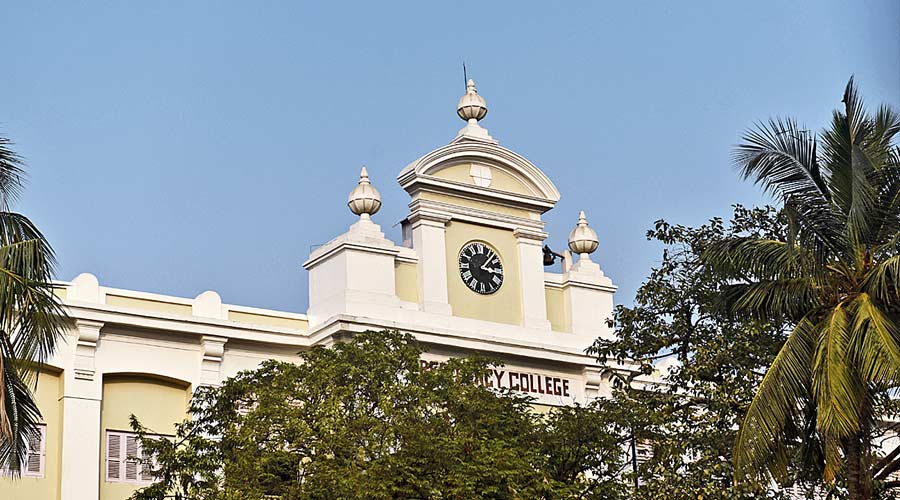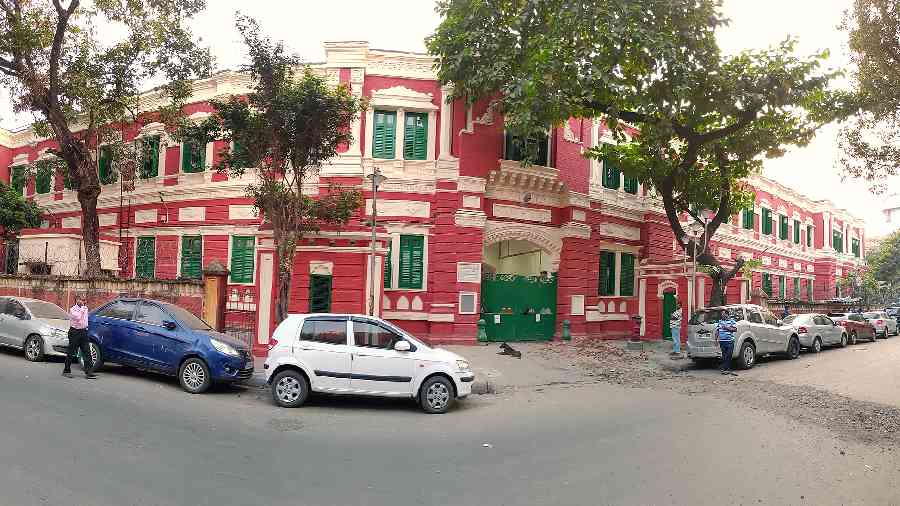Presidency University has started a school of astrophysics and an MSc programme in astrophysics from this academic year.
The school has been carved out from the existing physics department.
MSc in astrophysics has 10 seats.
The department will continue to offer MSc in physics.
Explaining the emergence of astrophysics, a teacher in the department said in the past two decades, India has built or been part of building large projects related to observational astrophysics in and outside the country.
Through the school, Presidency wants to draw a pool of young talent from West Bengal and the Northeast and train them as future scientists for “mega projects in astronomy”, the teacher said.
“We are in the process of setting up a new telescope in the observatory (formerly known as the Calcutta Observatory), which was set up in 1905. The university is doing the necessary civil work for renovating the observatory. We have resourced funds for the telescope and other equipment from the research grant,” said Suchetana Chatterjee, one of the three teachers associated with the school.
The Calcutta Observatory had two equatorial telescopes — one with a 7” aperture by Sir H. Grubb and another with a 4.5” aperture by T. Cooke and Sons — two astronomical clocks, a chronograph and a few good chronometers.
Regular observations of solar system planets and other objects were made and reported in journals published by the Astronomical Society of India in Kolkata.
The telescope was in operation till the 1960s when students of the astronomy course in the mathematics department used it.
“Astronomy was excluded from the mathematics syllabus in the new degree course and the well-equipped astronomical observatory attached to the department lost its significance,” said a teacher of the mathematics department.
“We are now restoring this heritage of astronomy research at Presidency and renovating the observatory with a new 12” optical telescope,” said Chatterjee.
In 2012, when Somak Raychaudhury, then a reader in astrophysics at University of Birmingham, had become head of the physics department at Presidency, he ensured that astrophysics was studied as an elective course in BSc physics.
He also ensured students could do MSc in physics with a specialisation in astrophysics.
Raychaudhury, who left Presidency in 2015 to become the director of Inter-University Centre of Astronomy and Astrophysics (IUCAA), Pune, on Thursday visited Presidency’s school of astrophysics on the College Street campus.
“It is one of the most important forward-looking steps that any university in West Bengal has taken. But they will have to allocate adequate resources,” Raychaudhury said.
“Astrophysics has always been our focus area. So the start of the MSc in astrophysics with the launch of the school was an obvious outcome. We want to build a pool of young talent who could be trained as the future scientists for mega projects in astronomy,” said Chatterjee.
The mega projects include AstroSat, India’s first space telescope dedicated to Astronomy, and LIGO-India, an advanced gravitational-wave observatory being built on Indian soil, Chatterjee said.

